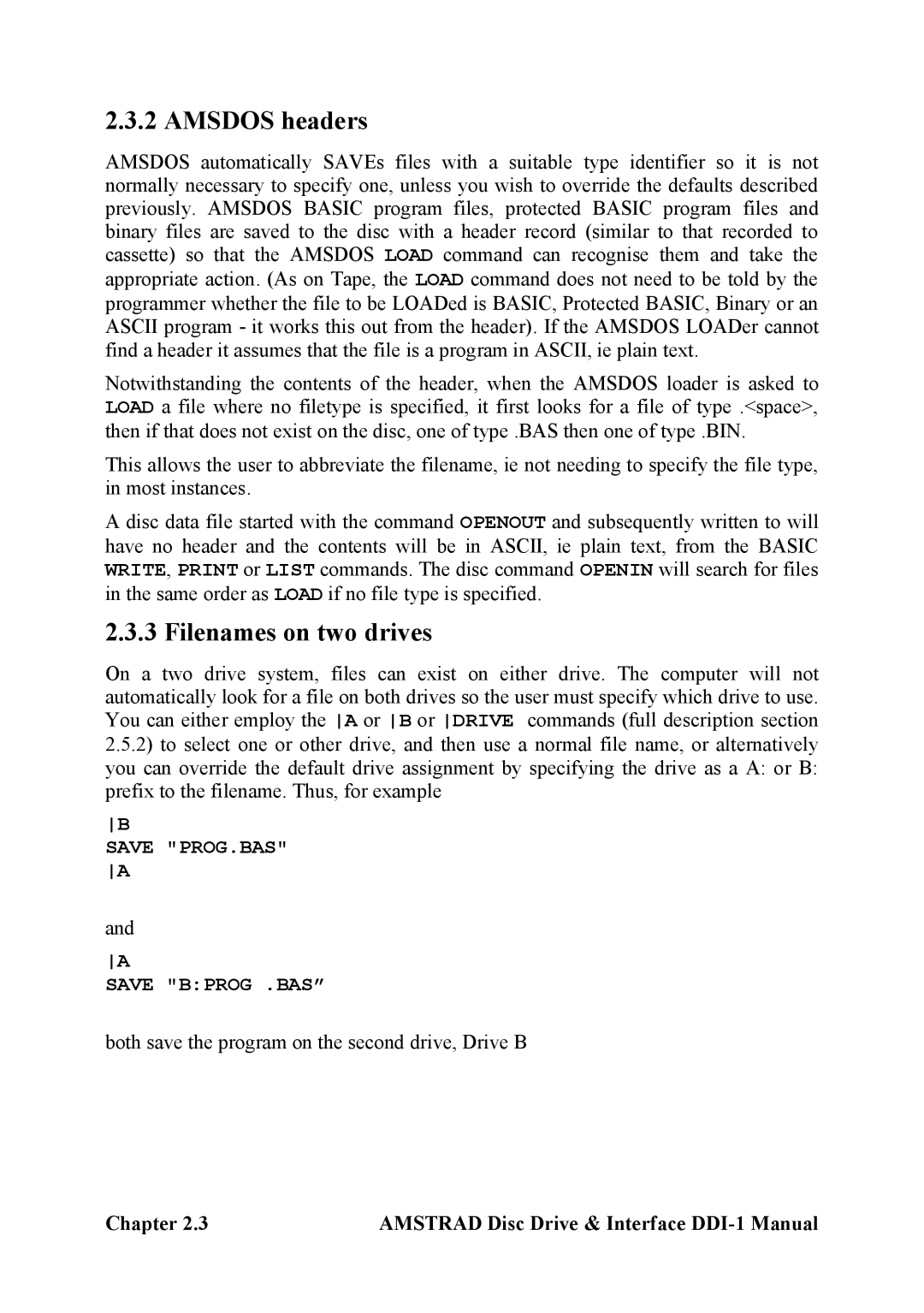2.3.2 AMSDOS headers
AMSDOS automatically SAVEs files with a suitable type identifier so it is not normally necessary to specify one, unless you wish to override the defaults described previously. AMSDOS BASIC program files, protected BASIC program files and binary files are saved to the disc with a header record (similar to that recorded to cassette) so that the AMSDOS LOAD command can recognise them and take the appropriate action. (As on Tape, the LOAD command does not need to be told by the programmer whether the file to be LOADed is BASIC, Protected BASIC, Binary or an ASCII program - it works this out from the header). If the AMSDOS LOADer cannot find a header it assumes that the file is a program in ASCII, ie plain text.
Notwithstanding the contents of the header, when the AMSDOS loader is asked to LOAD a file where no filetype is specified, it first looks for a file of type .<space>, then if that does not exist on the disc, one of type .BAS then one of type .BIN.
This allows the user to abbreviate the filename, ie not needing to specify the file type, in most instances.
A disc data file started with the command OPENOUT and subsequently written to will have no header and the contents will be in ASCII, ie plain text, from the BASIC WRITE, PRINT or LIST commands. The disc command OPENIN will search for files in the same order as LOAD if no file type is specified.
2.3.3 Filenames on two drives
On a two drive system, files can exist on either drive. The computer will not automatically look for a file on both drives so the user must specify which drive to use. You can either employ the A or B or DRIVE commands (full description section 2.5.2) to select one or other drive, and then use a normal file name, or alternatively you can override the default drive assignment by specifying the drive as a A: or B: prefix to the filename. Thus, for example
B
SAVE "PROG.BAS" A
and
A
SAVE "B:PROG .BAS”
both save the program on the second drive, Drive B
Chapter 2.3 | AMSTRAD Disc Drive & Interface |
